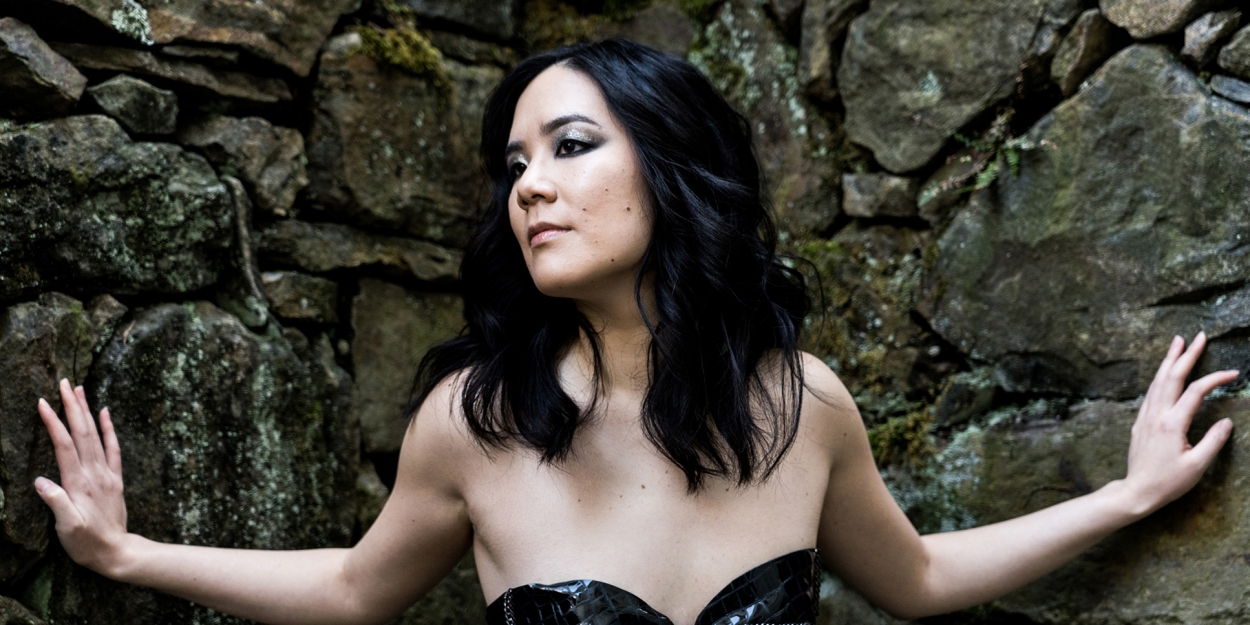Review: CHINATOWN DREAMS at Joe's Pub Is a Seamless Blend of Styles
The show stays creative and mesmerizing throughout, as it traverses sounds both old & new

Stephanie Chou, the composer, saxophonist, and singer, is back with a new show entitled Chinatown Dreams. Consisting of both original compositions and existing songs, the show explores many influences. The pieces written by Chou have inspirations as diverse as limericks, 9th century poetry, and even mathematics. Also present are songs ranging from 60s pop music to older folk tunes. Throughout it all, the creativity of the compositions and performance create an excellent show.
Chinatown Dreams draws on Shidaiqu music, a genre that that might not be familiar to many audiences, but sits at the heart of those intersections of influence. Chou explains that it means “songs of the era” and was pioneered in Shanghai during the 20s, and remaining popular into the 1950s. The genre grew out of the Nanjing Decade, a time of radical social & political change, and fuses more traditional Chinese musical sensibilities with contemporary American jazz music. Chou revives the style with gusto, singing in both Mandarin & English, as was common in Shidaiqu music. "Can’t Get Your Love" by Yao Lee, one such number, is a major highlight. Chou’s passionate delivery glides above the jazzy instrumentation. Bassist Matt Aronoff gets in a smooth solo, giving the tune a modern spin. The band performs another song of the era with "Wo Yao Ni / I Want Your Love." American audiences might know the tune from its use in the film Crazy Rich Asians, but might not know that it’s actually a bilingual version of Louie Jordan’s "I Want You to Be My Baby," showcasing the best of the style. The genre influences some of the original compositions as well. "Eating Grapes," based around a tongue-twister, features Shidaiqu-esque rapid-fire staccato vocalizing in upper register, as Chou channels her inner Grace Chang and belts it out like she’s been doing it her whole life. "Making Tofu" is another original piece inspired by a common saying, this time about the difficulty of making tofu from scratch. It’s a vibrant composition, in which Chou goes from singing to playing the saxophone with minimal downtime, an impressive feat. The tune is one of the show’s strongest, but the highlight of the song is pianist Hyuna Park, who takes an energetic and stylish solo.
In addition to midcentury styles, Classical Chinese influences are present throughout the show. Twice, the band performs original musical settings of poetry from the Tang dynasty, an era often considered a “golden age” of imperial China. For an untitled poem about forbidden love, the viola is emphasized. Bandmember Andy Lin’s skill on the instrument is evident, and provides an excellent accompaniment to the singing. The vocal melody tends towards drawn-out notes, a sharp contrast to the fast-paced delivery of some other numbers, but such a performance is no less captivating when Chou does it. The other poem set to music is about snow, and features James Wordsworth and Lito Villareal as guest singers, in addition to some of the band. The vocal harmonies they create are layered over a soft-yet-martial drum pattern from drummer Ronen Itzik to great effect. "General’s Command" is a rearrangement of an older song, full of striking arpeggios and a strident sax solo. The violin is plucked rather than played with a bow, an inspired decision that elevates the piece. The erhu, a string instrument common in Chinese music, is used on many of the classical songs in the setlist, played by Andy Lin (including vocals, Lin plays four instruments in the show). The two-stringed erhu really gets to shine on "Dragon," where its higher pitch forms almost a wordless duet with the lower tones of the sax, highlighting Chou’s skill as both a composer and a musician.
Two compositions are based on math, as Chou explains that it was her major in college. "0157-025" features a wonderful saxophone solo amidst rich drum fills, a walking bass, and heavy piano chords. The piece veers between calm and frenetic, as if to mimic the state of someone on the verge of a breakthrough, of finding a solution to a complex equation. "Continuum Hypothesis" continues that idea, as a more contemplative number about the concept of infinity.
One of the more eclectic tunes of the night is Sukiyaki, a Japanese pop song from the 1960s, famously covered by the disco group A Taste of Honey, who wrote new English lyrics but kept the song’s melody. Chou sings the English version, about loneliness and nostalgia while reminiscing on lost love. It’s an emotive number, and features another fun piano solo during an instrumental break.
Overall, Chinatown Dreams features a diverse setlist of styles, each of which are given a chance to shine in their own right. As the show moves from one song to the next, Chou’s performance never wavers, and is a delight throughout.
Learn more about Stephanie Chou online at www.stephaniechoumusic.com. (You can read a Q&A between Chou and writer Chloe Yang for more on Chou's songwriting inspiration.)
Find more upcoming shows at Joe's Pub on their website.
Reader Reviews

Videos
